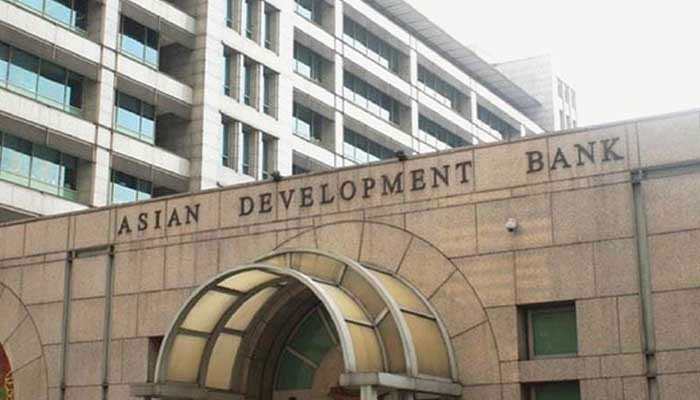Closing gender gap to boost Pakistan’s GDP by 30pc: ADB
KARACHI: Pakistan could raise GDP by as much as 30 percent if it can close the gender gap, ADB Country Director for Pakistan Xiaohong Yang said while expressing support to women’s economic empowerment, quality opportunities for social advancement, and resilience to external shocks.
“ADB will aim to increase women’s access to financial services and raise their skills and education levels – increasing their access to higher-skilled and waged employment such as the ICT sector, and bolster social protection programs, where women are the primary beneficiaries,” Yang said in a question-and-answer roundup.
“ADB will prioritise interventions to cut women’s time poverty and drudgery by improving their access to modern technology, particularly in the agriculture sector, connecting them to affordable and reliable energy, and contributing convenient water supply and sanitation solutions.”
Yang said gender inequities continue to be a significant challenge in Pakistan with low literacy rates and labor force participation for women. COVID-19 has heightened the risk of increased gender disparities in the country, she said.
The ADB recently endorsed a new country partnership strategy (CPS) for 2021–2025, designed to help restore economic stability and growth. This will focus on improving economic management, building resilience through human capital development and social protection, and boosting competitiveness and private sector development to expand economic opportunities.
In 2020, ADB committed $500 million to help finance the government’s countercyclical economic stimulus with a focus on boosting safety nets for the jobless and helping poor and vulnerable groups including women and children. ADB also provided a $300 million emergency support loan and repurposed $30 million to help reduce the socioeconomic and health impacts of the pandemic. ADB worked very closely with other international financial institutions and bilateral agencies during the COVID-19 crisis and mobilised about $1.22 billion in cofinancing from other development partners.
In addition, ADB quickly mobilised about $6 million in grants, together with $9 million in co-financing from other bilateral donors for immediate humanitarian and health emergency expenditures and training for health workers.
Yang said poverty reduction remains a key challenge in Pakistan. Around a quarter of the population lives below the poverty line; 20 million more are near-poor and highly vulnerable to shocks. ADB is currently working with Pakistan to access ADB’s Asia Pacific Vaccine Access Facility – a $9 billion resource envelope with country-specific allocations, accessible in line with our members’ readiness. These APVAX resources are in addition to the regular country allocation.
ADB’s official said a robust private sector is critical to the country’s goal of achieving upper-middle-income status, but the high cost of doing business limits its competitiveness.
Unreliable access to basic infrastructure is also a significant constraint for private sector activities, while access to finance remains limited for women entrepreneurs, small businesses, and other underserved segments.
“ADB will support the government in implementing tariff and tax reforms. The streamlined import tariff and tax procedures will help private businesses thrive and facilitate export diversification,” she said. “Our focus is on engaging public and private sectors to promote renewable energy, energy efficiency and build livable cities. We will continue to invest in rural infrastructure, strengthen agricultural value chains, improve connectivity, and increase access to finance by promoting lending to small- and medium-sized enterprises, women-led and women-driven businesses, and new business areas such as agribusiness, digitization, and tourism.”
Yang said ADB will maintain its support for building climate resilience and adaptation into communities and infrastructure.
Through its membership of Central Asia Regional Economic Cooperation Program and other regional platforms, Pakistan can continue improving connectivity, developing multimodal transport systems, and strengthening cross-border trade.
Pakistan has the potential to become a regional hub for trade and economic activity, but greater cooperation is impeded by weak connectivity and trade links.
-
 Jennifer Garner Drops Parenting Truth Bomb On Teens With Kylie Kelce: 'They're Amazing'
Jennifer Garner Drops Parenting Truth Bomb On Teens With Kylie Kelce: 'They're Amazing' -
 AI Is Creating More Security Problems Than It Solves, Report Warns
AI Is Creating More Security Problems Than It Solves, Report Warns -
 'Game Of Thrones' Prequel 'A Knight Of The Seven Kingdoms' New Ratings Mark Huge Milestone
'Game Of Thrones' Prequel 'A Knight Of The Seven Kingdoms' New Ratings Mark Huge Milestone -
 Apple Seeks To Dismiss Fraud Suit Over Siri AI, Epic Injunction
Apple Seeks To Dismiss Fraud Suit Over Siri AI, Epic Injunction -
 Delroy Lindo Explains The Crucial Role Of Musical Arts In Setting Up His Career Trajectory
Delroy Lindo Explains The Crucial Role Of Musical Arts In Setting Up His Career Trajectory -
 Timothée Chalamet Reveals How He Manages To Choose The Best Roles For Himself
Timothée Chalamet Reveals How He Manages To Choose The Best Roles For Himself -
 Princesses Beatrice, Eugenie’s Conflict Gets Exposed As Mom Fergie Takes Over The Media
Princesses Beatrice, Eugenie’s Conflict Gets Exposed As Mom Fergie Takes Over The Media -
 Kate Middleton Plays Rock-paper-scissors In The Rain
Kate Middleton Plays Rock-paper-scissors In The Rain -
 Lindsay Lohan On 'confusing' Teen Fame After 'Mean Girls': 'I Should Have Listened To My Mom And Dad'
Lindsay Lohan On 'confusing' Teen Fame After 'Mean Girls': 'I Should Have Listened To My Mom And Dad' -
 Savannah Guthrie Mom Update: 'Today' Show Sees Huge Ratings Boost Amid Search For Nancy Intensifies
Savannah Guthrie Mom Update: 'Today' Show Sees Huge Ratings Boost Amid Search For Nancy Intensifies -
 Hillary Clinton To Testify In Epstein Probe Alongside Bill Clinton
Hillary Clinton To Testify In Epstein Probe Alongside Bill Clinton -
 Meghan Markle, Prince Harry End Jordan Trip With Meaningful Hospital Visit
Meghan Markle, Prince Harry End Jordan Trip With Meaningful Hospital Visit -
 AI Boyfriends Gain Popularity In China As Young Women Turn To Virtual Romance
AI Boyfriends Gain Popularity In China As Young Women Turn To Virtual Romance -
 Prince William Receives Reality Check As His Media Strategy Fails
Prince William Receives Reality Check As His Media Strategy Fails -
 Zach Braff Reflects On Doing Odd Jobs Ahead Of Major Career Breakthrough In 2001's 'Scrubs'
Zach Braff Reflects On Doing Odd Jobs Ahead Of Major Career Breakthrough In 2001's 'Scrubs' -
 Google Rolls Out Nano Banana 2 With 4K AI Image Generation
Google Rolls Out Nano Banana 2 With 4K AI Image Generation




